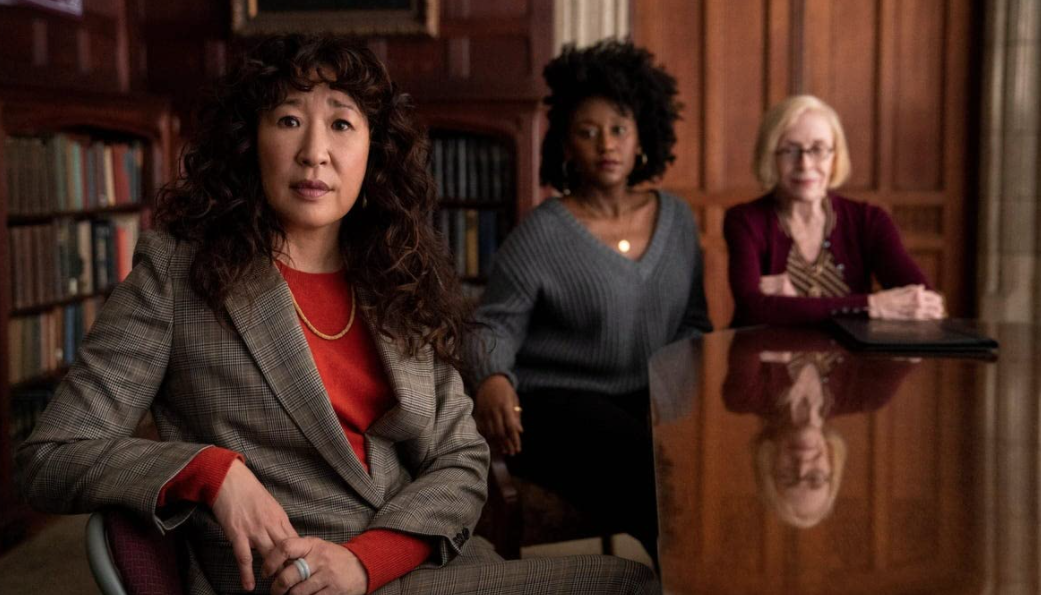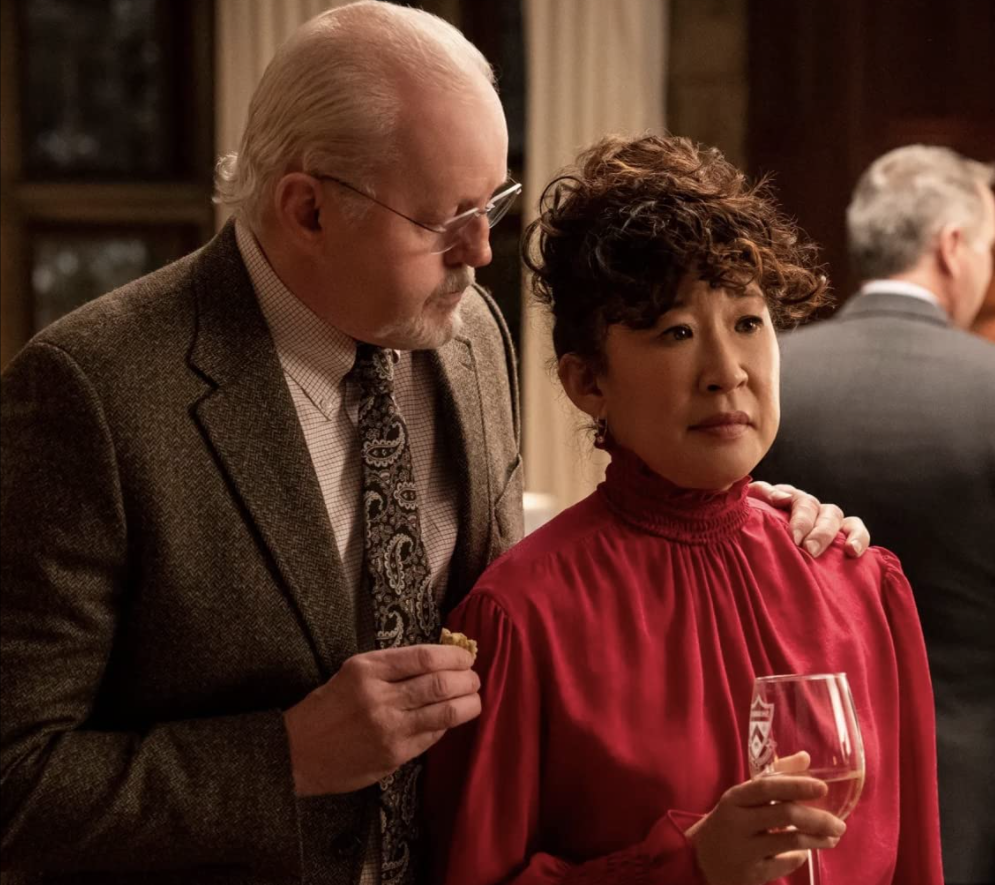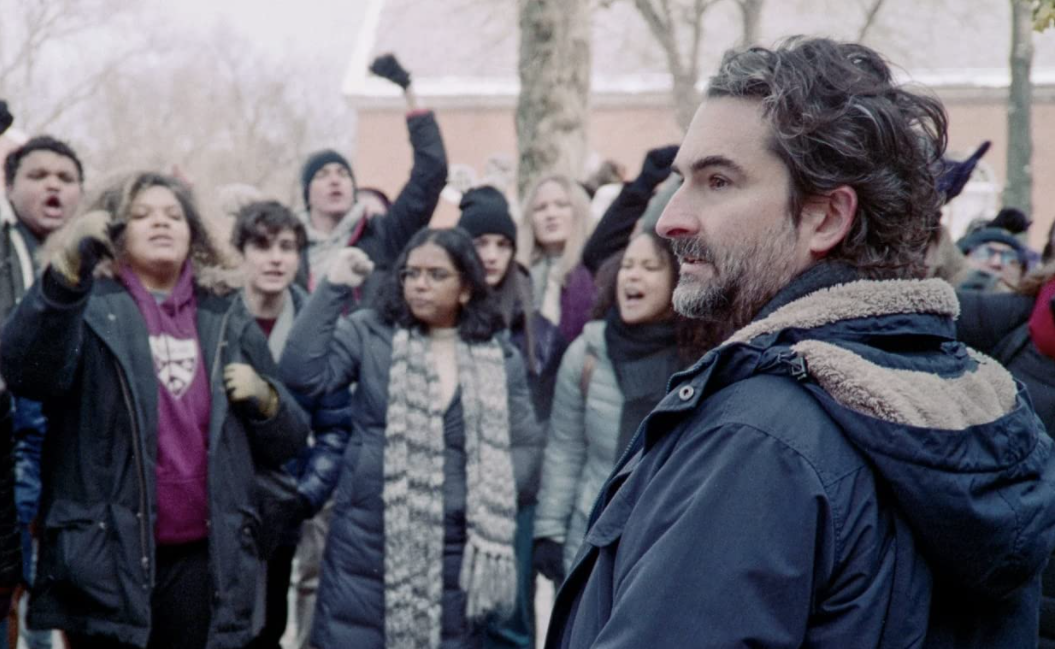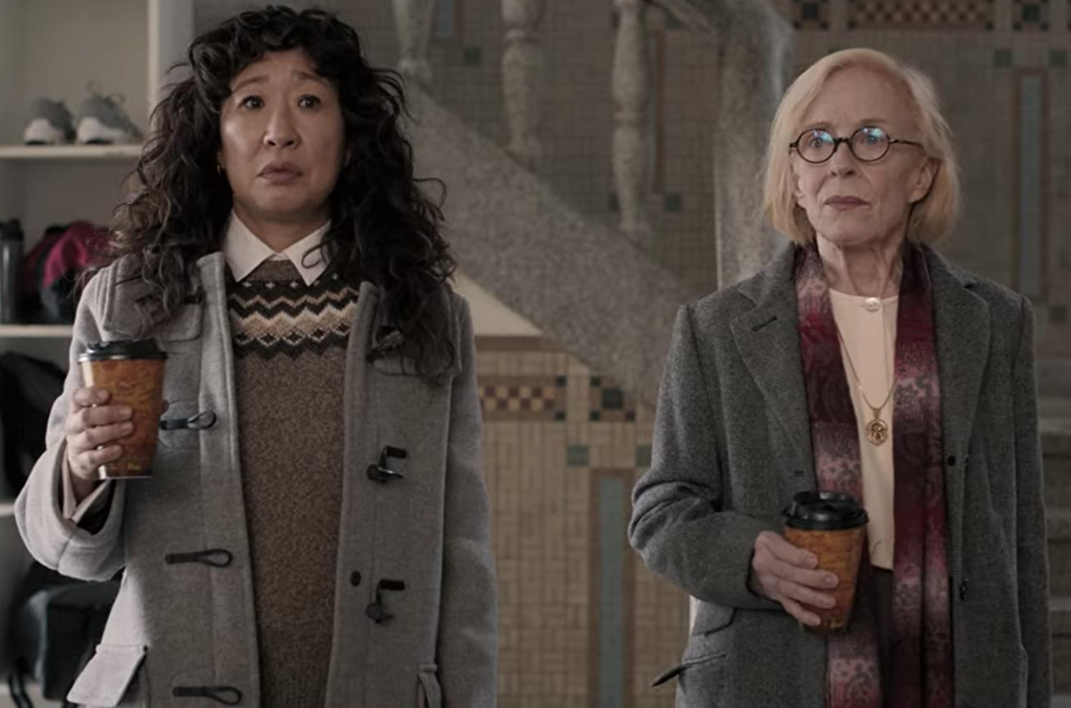by Lynn Lee

In my younger days, I wanted to be an English professor. I was pretty serious about it, too – serious enough to major in English, get a fellowship, and enroll in a Ph.D program. Ultimately, I realized academia wasn’t for me and left with just a master’s. I’ve never regretted that decision. Yet I still wonder occasionally what my life would have been like if I’d stuck with my original dream.
So it’s no wonder I immediately let myself sink into The Chair, a new Netflix (mini?)series starring Sandra Oh as the titular chair of the English department at Pembroke University. That's a fictional Ivy League school in what looks like a permanently snow-covered New England college town, although the show was actually shot in Pennsylvania. Basically, it’s my alternate-universe existence if I were as cool and charismatic as Sandra Oh and as brilliant and committed as her character, Ji-Yoon Kim...

The newly appointed Ji-Yoon, as it turns out, is the first woman of color to serve as chair. Initially, she sees this as an opportunity to modernize her very traditionalist, very white department. It doesn’t take her long, however, to realize the position is more of a trap.
Right from the start, Ji-Yoon finds herself under pressure from the dean (David Morse) to find three faculty members to cut in response to her department’s declining enrollments. Meanwhile, she works overtime to ease tensions between Yaz (Nana Mensah), a rising star and popular black junior professor she supports and desperately wants to tenure, and the much older Elliot (Bob Balaban), a giant in Yaz’s field who’s become something of an artifact. Adding to the new chair’s headaches are the stumbles of another colleague, Bill (Jay Duplass), who’s a complete mess after the death of his wife but whose romantic sparks with Ji-Yoon complicate her attempts to keep him out of trouble. Oh, and did I mention that Ji-Yoon’s also single mom to a particularly headstrong 7-year-old adopted daughter?

There’s a lot going on here, arguably too much to squeeze into six half-hour episodes, although The Chair manages to cover its wide-ranging territory with impressive efficiency and a light touch. Ostensibly a comedy but more of a dramedy, its humor nearly always has serious thematic underpinnings. These become more overt as the department’s status goes from precarious to FUBAR after Bill performs a mock Nazi salute in one of his lectures, leading to an uproar. The show walks a careful line with this plot, preserving sympathy for Bill while underscoring how little he understands his students’ perspectives. This balancing act isn't entirely successful, given that we spend so much more time with Bill than with any of the students. Still, it’s a welcome attempt at nuance in a debate usually devoid of that quality, even if I found Bill more exasperating than charming. In general, I could have done with less of Bill and Ji-Yoon’s will they/won’t they subplot, notwithstanding their chemistry. I did, however, appreciate the attention the show devotes to the rest of Ji-Yoon’s personal life – not just her daughter but Ji-Yoon’s absolutely lovely elderly father (Ji-Yong Lee) and their local Korean community, of whom we get an entertaining glimpse in episode 5 that left me wanting more.
Still, it’s Ji-Yoon’s struggles at Pembroke that drive the series, both dramatically and comedically. I can’t speak to how realistically The Chair depicts the inner workings of an English department in an elite university, since I haven’t set foot in one in two decades, though I’ll note that one of the show’s creators, Annie Julia Wyman, has an English Ph.D from Harvard. (The other co-creator is Amanda Peet, who also executive produced the show along with Oh, Peet’s husband David Benioff, and Benioff’s Game of Thrones co-creator D.B. Weiss – talk about a random team!) I did find myself wondering where all the adjuncts and TAs were (we meet exactly one grad student over the course of the show) and why anyone would consider being department chair a promotion when from what I know, it’s a position most professors don’t want.
On the other hand, the various faculty members, ranging from ancient relic to aging former superstar to bright up-and-comer and one amusing celebrity cameo, did ring all too recognizably true to me. And while the senior faculty do get hit with a lot of jokes about being, well, old, they’re not reduced to mere caricature. Balaban’s performance as the frostiest and tightest-lipped of the old guard is a marvel of layering, gradually revealing the pathos of a man who senses his time has passed but can’t quite accept what has replaced it. At the opposite end of the spectrum, Holland Taylor is a pure delight as the crusty, cantankerous Chaucer expert and first tenured female professor at Pembroke, who knows she’s getting edged towards the exit but isn’t submitting without a fight.

But when all’s said and done, The Chair rises and falls by Oh – and she’s fantastic. With every flicker of her expression and every shift in her tone, she conveys Ji-Yoon’s good intentions and genuine desire for progress, but also her vulnerabilities, frustrations, and conflicted allegiances between an older generation that, for all its problems, she’s looked up to and that’s helped her get where she is, and a younger generation that both expects and deserves better. As a fellow Gen Xer, I get it. (In an odd way, The Chair reminded me at times of Hacks, not so much because of any similarity in content but because they prompted a similarly Gen-X flavored reaction on my part to the intergenerational friction so continually on display.) However, you don’t need to be in alignment with Ji-Yoon’s perspective to appreciate Oh’s performance. While there’s plenty to enjoy about The Chair, she is what makes it essential viewing.